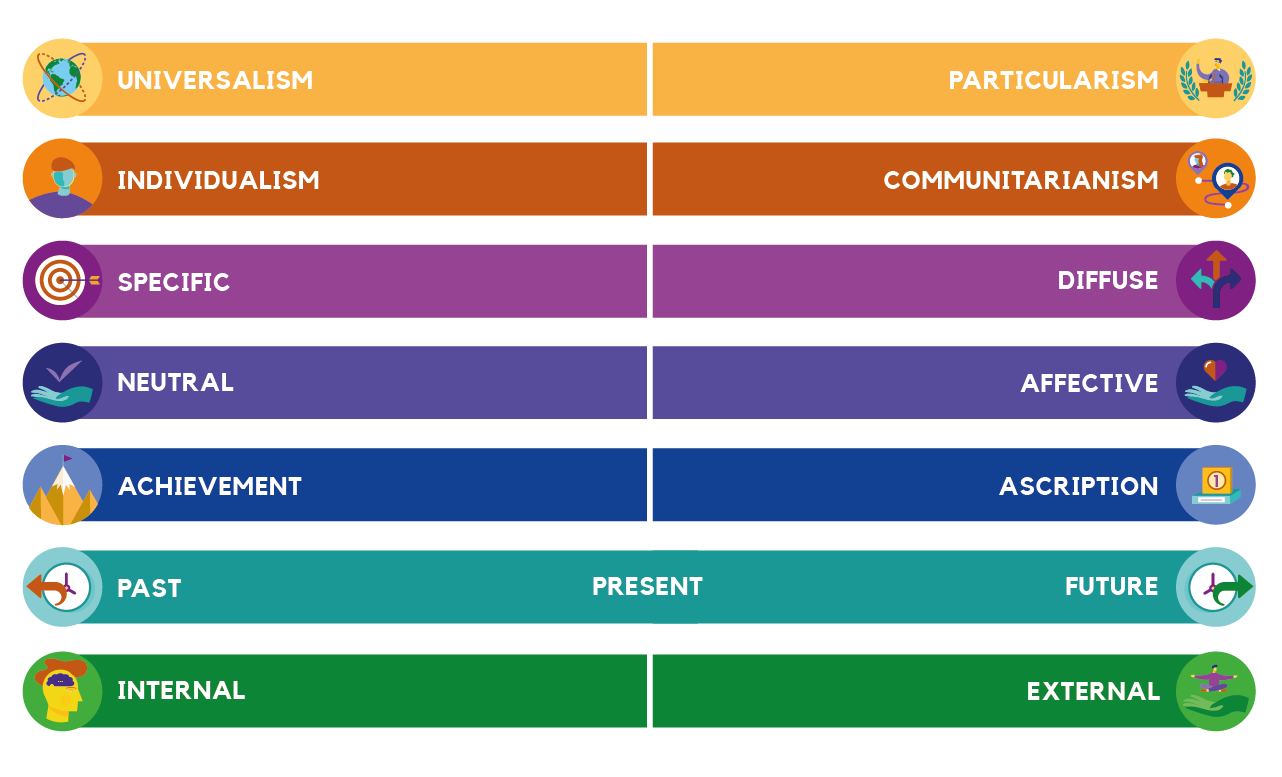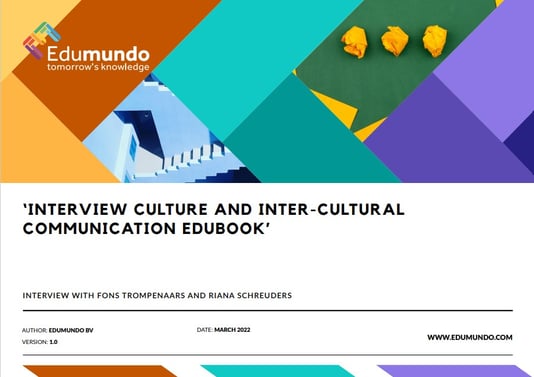The Culture and Inter-cultural Communication Edubook focuses on teaching and applying inter-cultural skills and competences. Learners develop a way of thinking that can be applied in any inter-cultural situation.
The learning resource is relevant to any student or professional who deals with cultural differences and people from other cultural groups either during their studies or in the workplace. The publication can be used from the first year of study and by professionals who work in multi-national organisations or organisations dealing with local diversity.
The Culture and Inter-cultural Communication Edubook is aimed at teaching different approaches that can be used in any situation. These are presented in a variety of interactive ways.
The publication is visually appealing and includes interactive activities which incentivise students to study and learn the content. The Edubook also makes use of digital didactics, such as interactive exercises and a reflective portfolio focused on accumulating experiences regarding inter-cultural communication.
The Edubook is built around the 4-R model (Recognition, Respect, Reconciliation, Realisation). With the 4-R model as a central point, students learn to master inter-cultural competences. It's not just about respecting and recognising cultural differences. Reconciliation and Realisation, or finding creative, values-transcending solutions make this Edubook stand out.
The Edubook stimulates methods of thinking that can be applied in any inter-cultural situation.
The focus of the publication is mainly on the application of inter-cultural skills in professional settings. The theory and various models support solving inter-cultural dilemmas, learning new skills and approaches to cultural differences.
The Edubook is based on the "7-Dimensions" from the author Fons Trompenaars and "Dilemma Reconciliation" from the author Charles Hampden-Turner. References are made to other models such as those of Hall, Schein, Hofstede and Meyer, amongst others. Instead of focusing on each model separately, this publication is about the coherence of the models when applied in practice. This meets the needs of learners who often are required to learn a lot of different models but have a little insight into the coherence as well as the differences between them.
Fons Trompenaars is known worldwide for his work as a consultant, trainer, speaker and author of many books on culture and business.
Dr. Riana Schreuders is a Cultural Intelligence specialist with a passion for developing intercultural competence in business professionals. Riana is currently teaching at the Utrecht University of Applied Sciences.
Joep Hofhuis is Associate Professor at the Amsterdam School of International Business (AMSIB) at Amsterdam University of Applied Sciences. His research is focused on diversity and intercultural communication in organisations and in higher education.
Check out our interview with the authors below to find out more about their experience in culture and inter-cultural consultancy and their approach to writing the Edubook.

Edubooks combine all learning resources from one subject into one place; they replace the standard text book with a format that encompasses articles, theories, case studies, exercises and assignments, and even exams. In principle, the Edubook is often used as an online app or ebook, providing students with all the functionalities students come to expect from contemporary e-learning. The Edubook also has a printing function for people who prefer to work on content in hard-copy format.
.png?length=300&name=unnamed%20(11).png)
.png?length=300&name=unnamed%20(7).png)
.png?length=300&name=unnamed%20(8).png)
.png?length=300&name=unnamed%20(6).png)

.png?length=300&name=unnamed%20(10).png)
.png?length=300&name=unnamed%20(5).png)
.png?length=300&name=unnamed%20(9).png)
.png?length=300&name=unnamed%20(4).png)
.png?length=300&name=unnamed%20(2).png)
.png?length=300&name=unnamed%20(1).png)
.png?length=300&name=unnamed%20(3).png)
.jpg?length=300&name=unnamed%20(2).jpg)





.png?length=300&name=loughborough-university-logo%20(small).png)


 Management simulation
Management simulation Edubook
Edubook
application recieved
We have received your question and we will return to you within 24 hours on workdays.